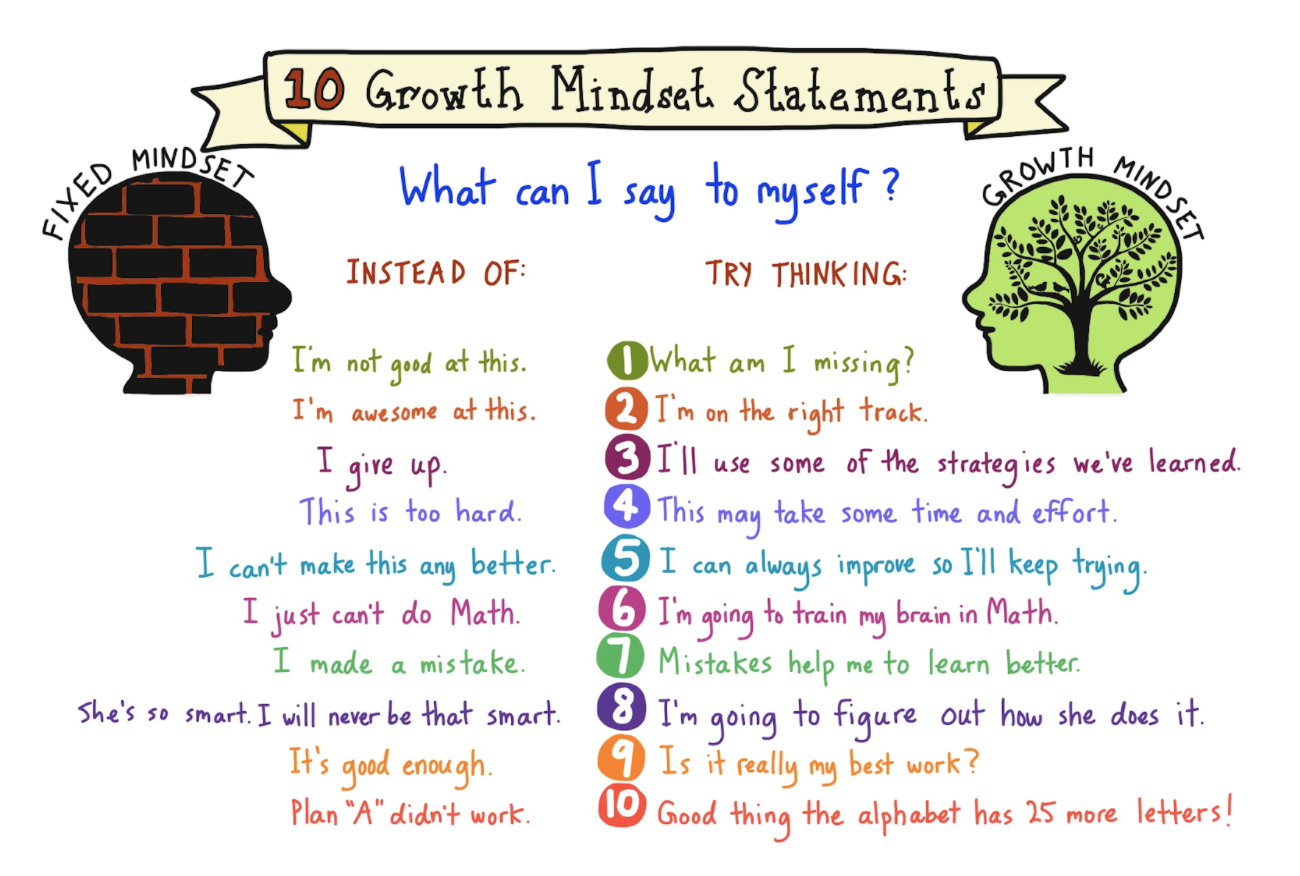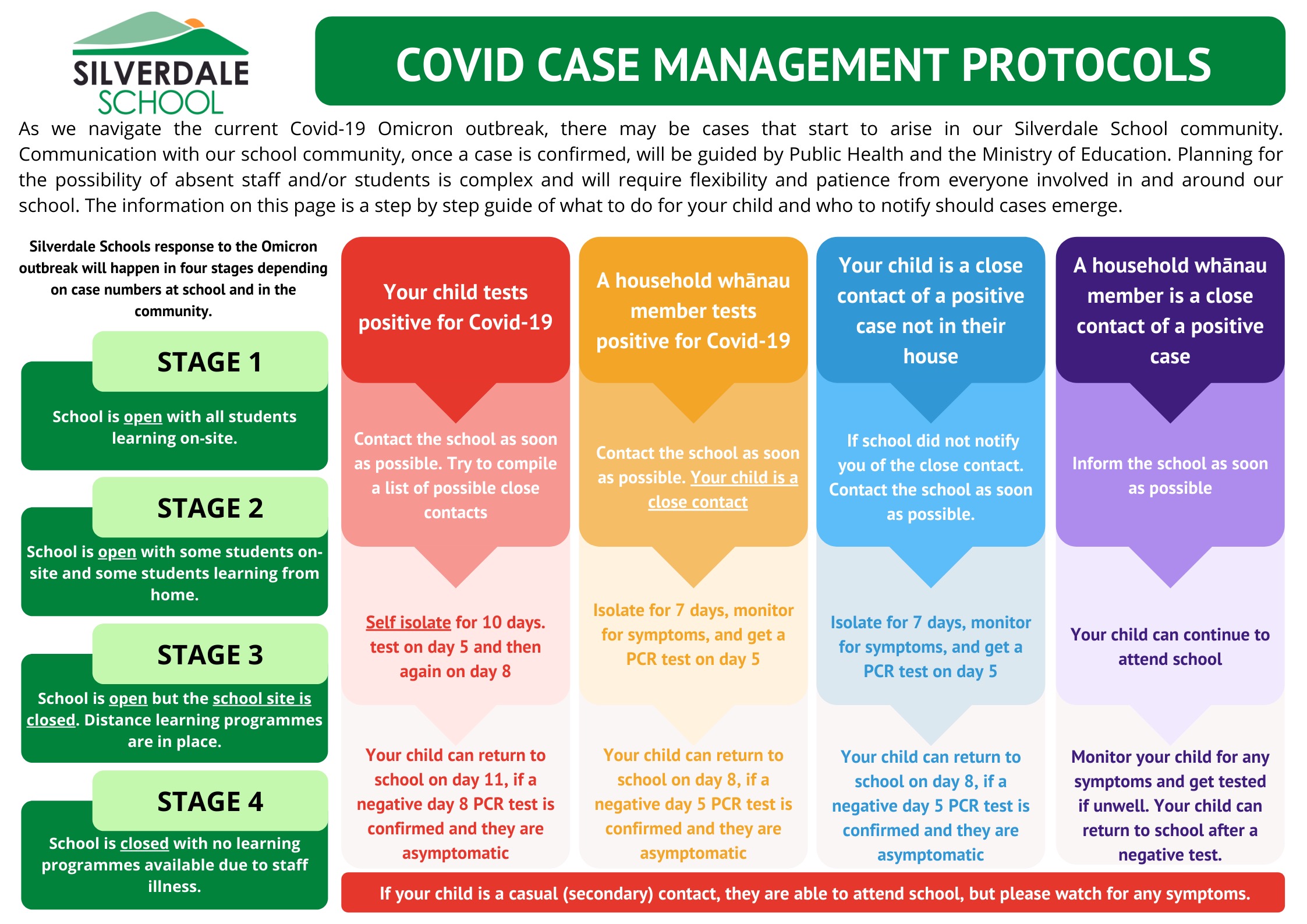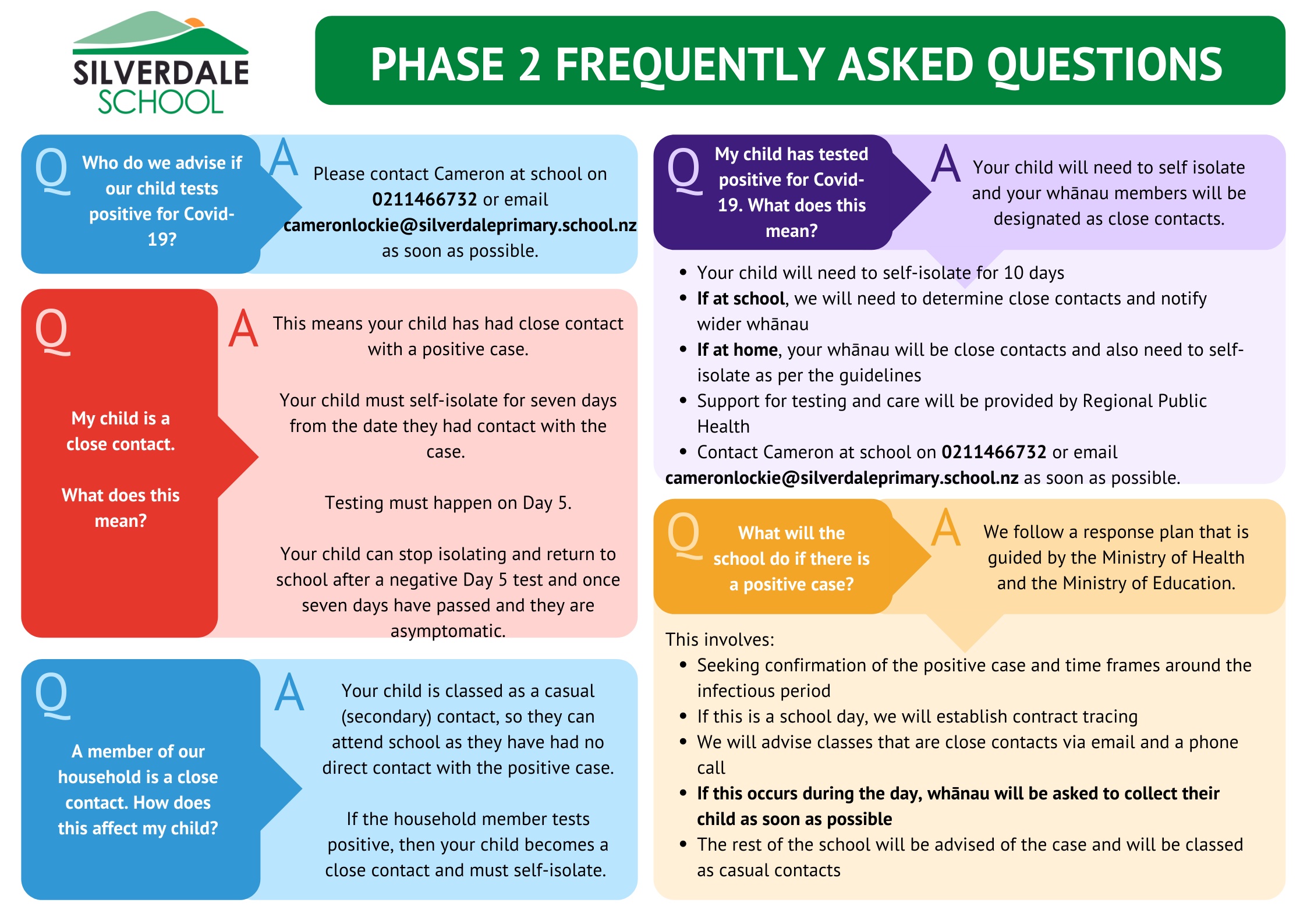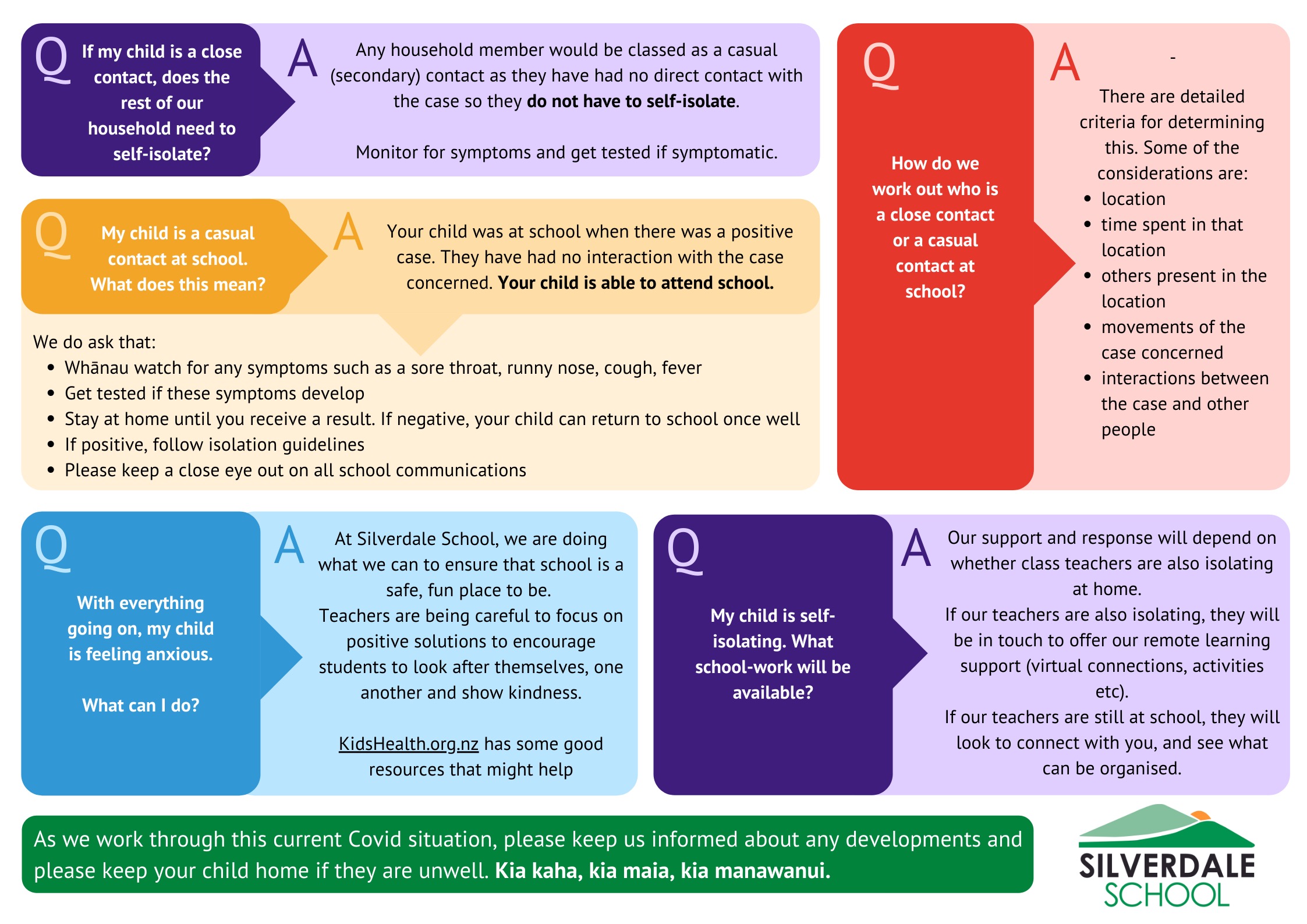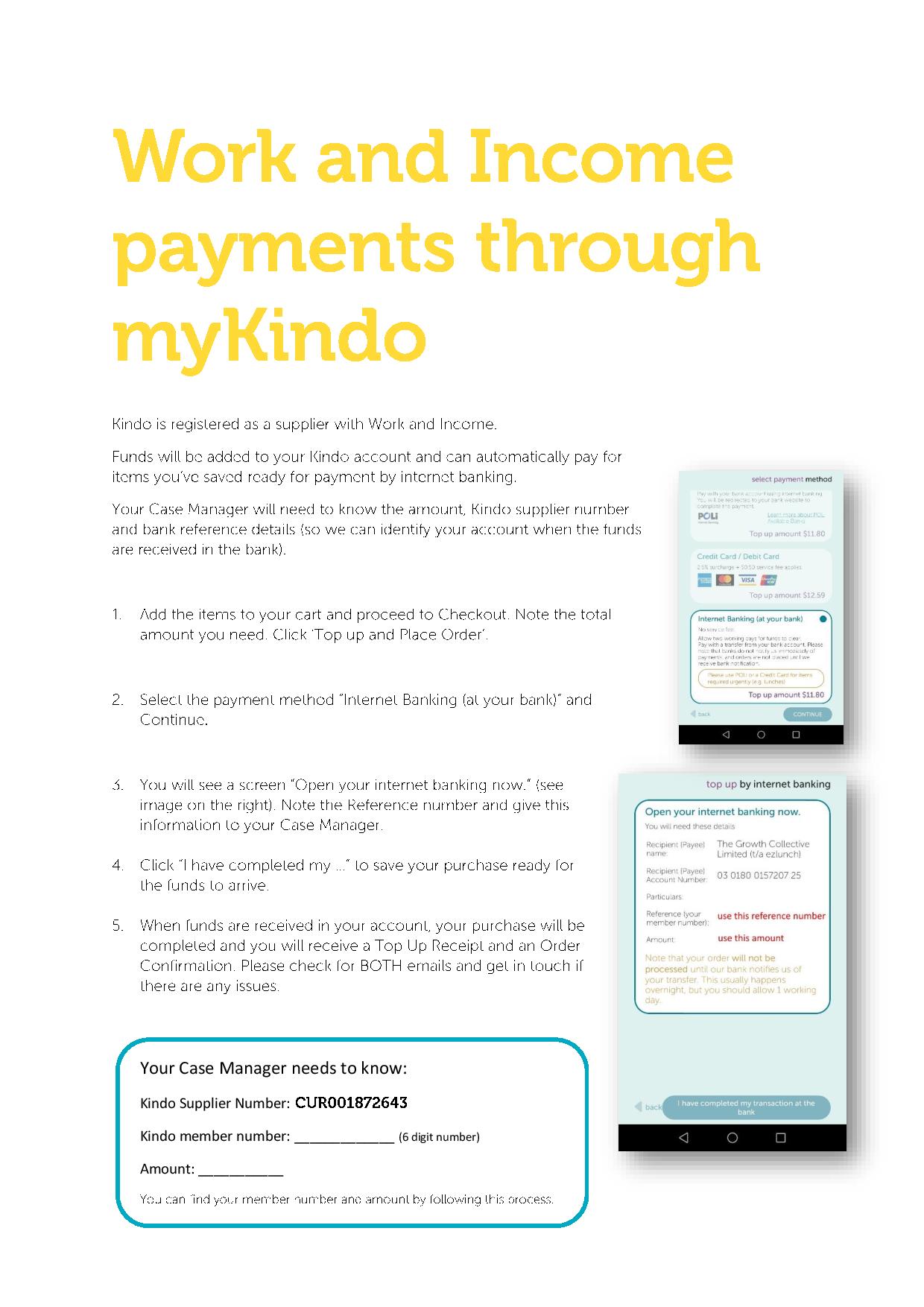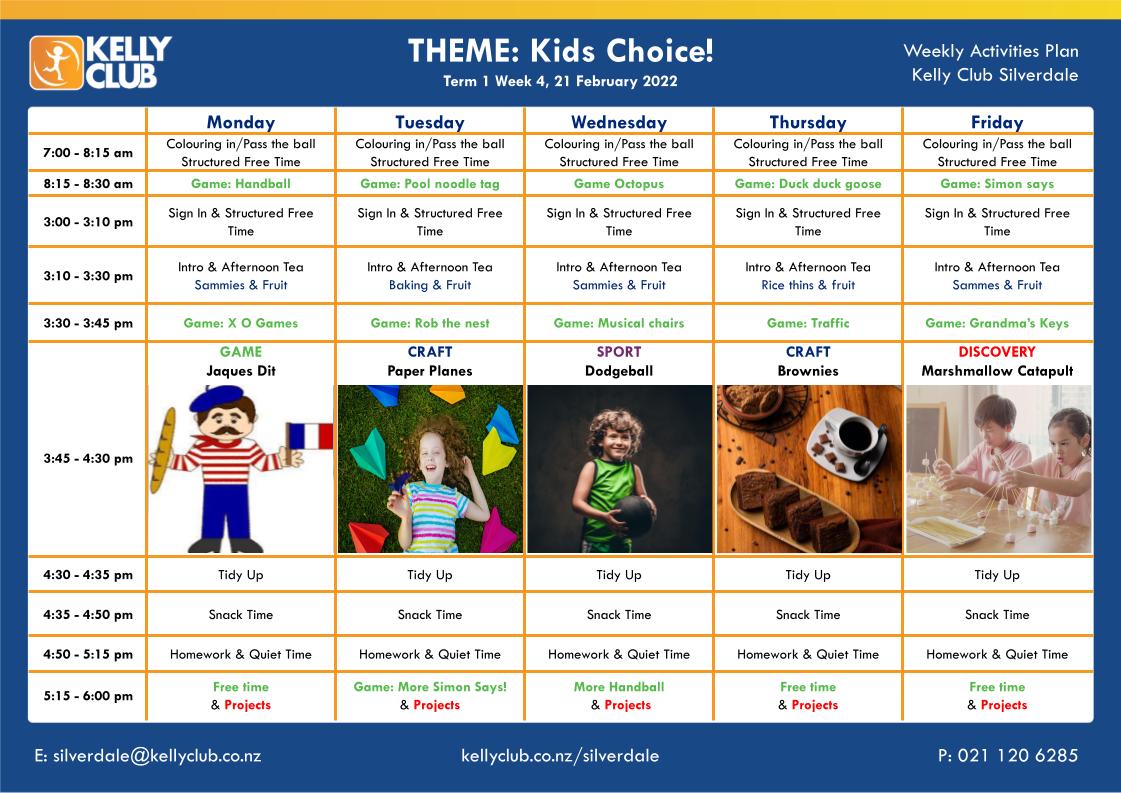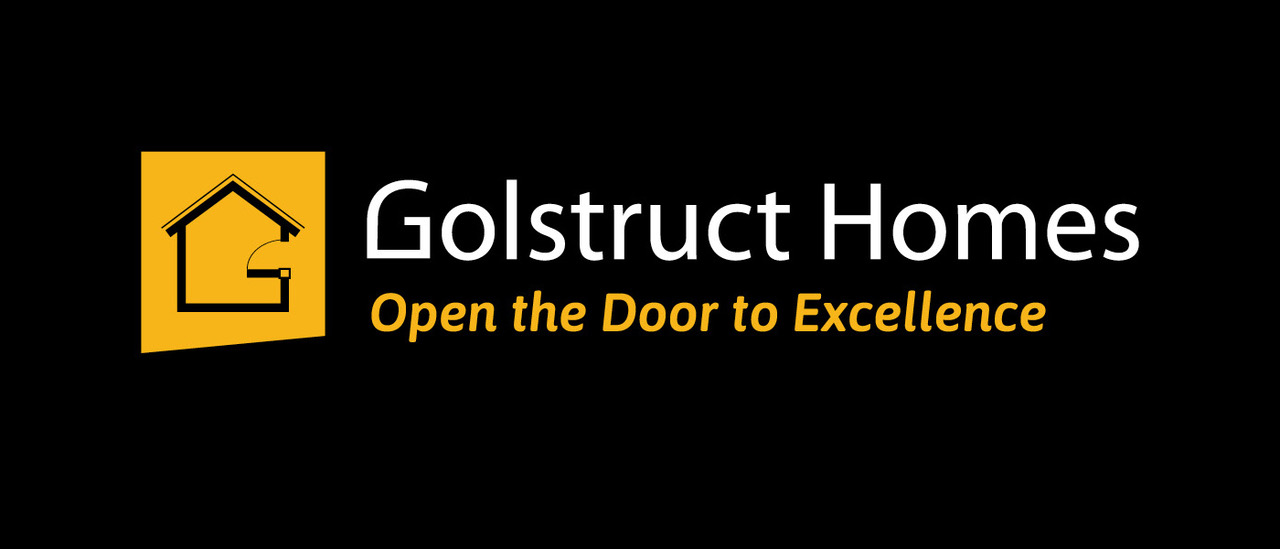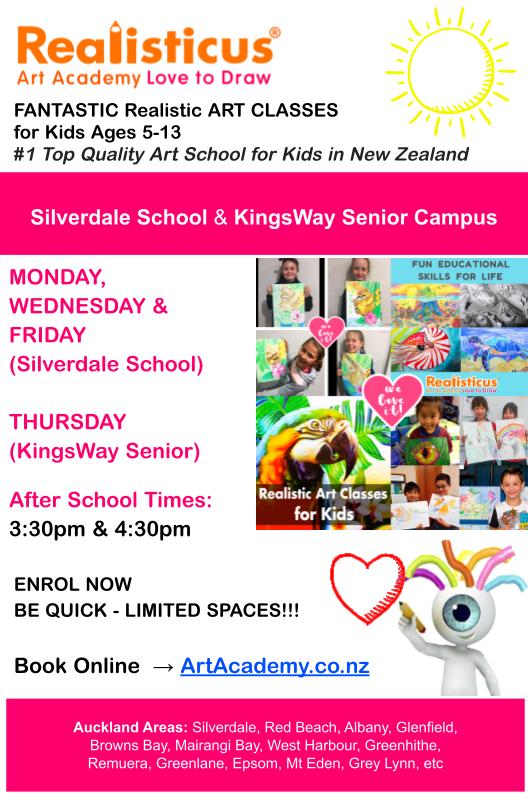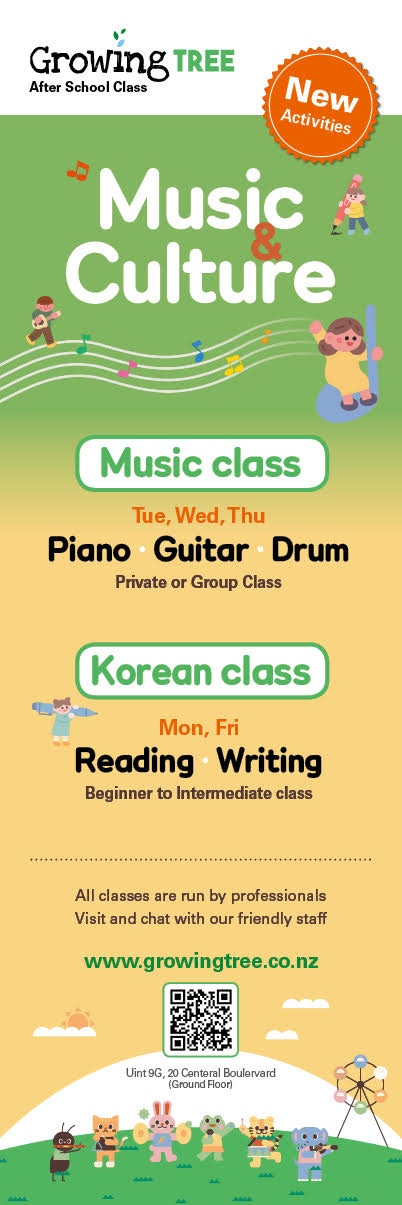Close Contact or Positive Case
If your child is a close contact or test positive for Covid 19 please contact Cameron at school on 0211466732 or email cameronlockie@silverdaleprimary.school.nz as soon as possible.
School Carparking
We have limited car parking available at school for parents and we share these spaces with the kindy parents. Kindy pick up time is 2.30pm it would be great if our parents could leave spaces for the kindy parents to pick up their children and our parents to use the stop, drop and go. Please don’t park in the stop, drop, go area until after 2.45pm, this helps to make sure that kindy parents can get into kindy to pick their children up.
Please do not park in the staff carparks these are for our staff only.
Welcome
Welcome to Rosa Meng, Sienna Gibson, Gisele Gibson and John-Nathan Dixon.
who started with us this week. Our current roll is 788.
Happy Birthday
Happy birthday to Cole Pulley, Tarla Davies, Wyatt Pipkin, Brennan Tipace, Joshua Van Wyk, Graceson Jaram, Leo Ashkettle, Olivia Kinross, Henry Peach, Sienna Thomas and Sasja Planjar.
KERI Awards
Well done to the following children who received Caught by KERI awards at Monday’s virtual assembly.
| |
Team Te Ohanga
|
Team Kiwi
|
Team Pukeko
|
Team Tui
|
|
Kindness
|
Vinisha
|
Polly
|
Christiaan
|
Lisone
|
|
Excellence
|
Finnlay
|
Jackson
|
Anisa
|
Henry
|
|
Respect
|
Jesse
|
August
|
Deacon
|
Maxim
|
|
Integrity
|
Emily
|
Elimyss
|
Casey
|
Skyler
|
Silverdale School Board Hui
On Monday 28 February at 7.00pm the Silverdale School Board will meet for our first hui of the year. This hui will be held via Zoom and all are welcome to attend.
Later this year there will be the Silverdale School Board elections, if you are interested in joining the Board please come along to our hui on Monday.
Here is the link for our hui:
https://us02web.zoom.us/j/87944817040?pwd=WVVjZHdVR203YUFjU3FWa1hxNSszUT09
Pick Up and Drop off Students
Scheduled Appointments
If you have a scheduled appointment for your child during school hours please follow these instructions:
- Email the teacher (all teachers emails are on the School Website) before 8.30am with the time you will be collecting your child.
- You will pick your child up from the carpark by Gate 1.
- Please stay in the car and the teacher will release your child at the specified time that you have requested.
- Please call or text this number 0273369199 telling us that you have your child.
Early Pick Up
If you need to pick your child up from school before 3.00pm please follow these instructions:
- Email the office what time you need to pick up your child. office@silverdaleprimary.school.nz
- You will pick up your child from the carpark by Gate 1.
- Please stay in your car and call or text this number 0273369199 telling us you are at school.
- We will send your child to you, please stay in your car.
- Please call or text this number 0273369199 telling us that you have your child.
Late Drop Off
If you are dropping your child to school late, please do not get out of your car just send your child to their classroom, they do not need to go to the office.
Restorative Practices at Silverdale School
Me ata tirohia ki te kate
The problem is the problem, the person is not the problem
At Silverdale School we use restorative practices/approaches as alternatives to more punitive disciplinary systems and procedures where often there have been little or no links between wrongdoers and those they have harmed, nor any real connections between the punishment and the actual offence.
The essence of restorative practices is simple: that all people are happier, more productive and more likely to make positive changes in their behaviour when those in positions of authority do things with them, rather than to them or for them. Building, enhancing and restoring relationships across any workplace, community group, school or culture, is absolutely essential for a strongly connected, empathetic, functioning society.
We feel that our previous measures we used, often fail to meet the relational needs of teaching and learning in the 21st century. We are finding restorative practices/approaches are more effective in establishing long term lasting changes in relationships, more connecting of the members of a school community and more involving and hearing of victims.
Punitive versus Restorative Responses
|
Punitive Responses – focus on punishment.
|
Restorative Responses – focus on accountability, healing and needs.
|
|
What rule has been broken?
|
What happened?
|
|
Who is to blame?
|
Who has been affected? How?
|
|
What is the punishment going to be?
|
What needs to be done to put things right?
|
| |
What do we need to do to move forward?
|
Restorative practices/approaches is based on the idea that the best way to help someone who has done wrong is to give them the opportunity to put things right.
As a staff we are using restorative conversations when dealing with challenging behavior you can also apply this at home.
Tell the Story
- Tell me what happened?
- What has led to us needing this conversation?
- What were you thinking when you did that?
- What have you thought about since?
- How does that fit with our values here?
Explore the Harm
- Who do you think has been affected? Who else?
- In what ways?
- What do you think it must have been like for them?
- What that a fair or unfair thing to do? The right or the wrong thing to do?
Repair the Harm
- What needs to happen to put things right?
- What do you think_________ needs to hear/see from you now?
- Is there anything else that you can think of that might help?
- What will sorry look like in action from here?
Reach an Agreement
- What do you need to stop doing, stay doing, start doing?
- If this happens again – what could/would you do differently?
- From now on how will you show the school/home values?
- What do you need from me/us to support you?
Plan Follow Up
- When shall we check in with you to see how you’re going?
- What will happen if our agreed outcomes haven’t been reached?
Growth Mindset
At Silverdale School we talk with the children about having a growth mindset and not a fixed mindset. Below is an excerpt taken from https://www.mindsetworks.com/science/ about the difference between a growth mindset and a fixed mindset.
Fixed vs. Growth: Understand the two basic mindsets that shape our lives
Have you ever wondered why some children shy away from challenges and crumble at the first sign of a struggle? Maybe your child has a history of quitting activities, sports, or school work when they didn’t immediately excel. Maybe years of struggle or a few bad experiences have convinced your child that “I’m just not good at that.” Learning about fixed and growth mindsets will help you to change destructive patterns, allowing your child to lead a happy and fulfilled life full of lifelong learning and limitless potential.
What is a growth mindset?
Through decades of research, Dr. Carol Dweck, a Stanford University Psychologist, found that people’s beliefs about their intelligence differ. Some people believe that their intelligence and abilities are unchangeable. In other words, you have a certain amount of intelligence, and you can’t do much to change it. This is called a “fixed mindset.” Think about the phrase, “I’m not a maths person.” This statement indicates a fixed mindset about maths, because it attributes maths ability to an unchangeable quality. Others have different ideas about their intelligence and abilities. Some people believe that it is possible to grow your intelligence through effort. This is called a “growth mindset.” Think about the phrase, “Maths was really confusing at first, but I’ve studied hard all year and I understand it a lot better now.” This indicates a growth mindset, because it shows a willingness to dig in deep.
Why is it important?
Holding a fixed or a growth mindset has huge implications when it comes to motivation. If children have a fixed notion of intelligence, they probably believe that success has a lot to do with talent. They may think that some are born with the ability to succeed, and others just aren’t. They might view successful people as possessing some unattainable, innate gift. The side effect of the fixed mindset is a helpless or apathetic attitude toward effort — especially when it comes to challenging tasks. The simple belief that intelligence is malleable can better equip children for challenging tasks and difficult subject matter. If they know that they can develop their abilities, that effort and dedication make a difference in the formula for success, and then children won’t become paralyzed by challenge. The growth mindset creates a love of learning and a resilience that is essential for achieving goals.

